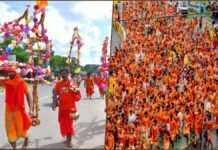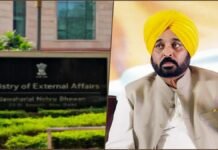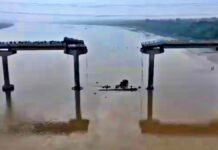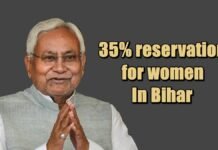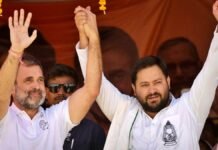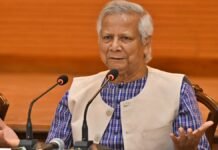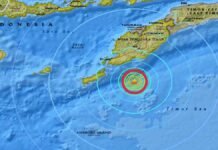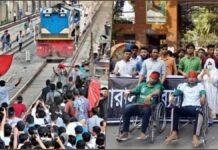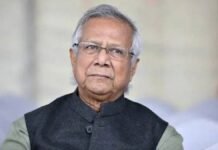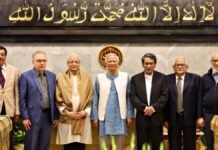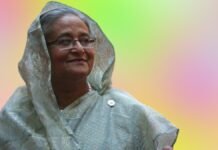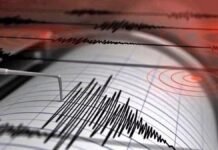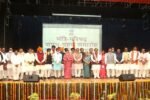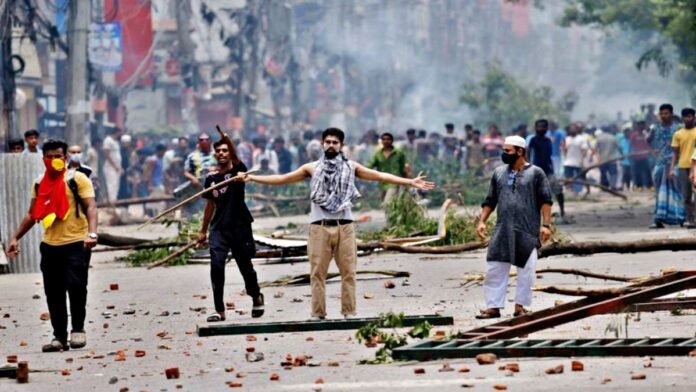
Dhaka: In a wave of violence sweeping across Bangladesh, at least 72 people lost their lives and dozens sustained injuries as police clashed with protesters on Sunday. The protesters, numbering in the tens of thousands, were demanding the resignation of Prime Minister Sheikh Hasina. Authorities responded with tear gas and stun grenades in an attempt to disperse the crowds.
As the violence escalated, a curfew was declared in Dhaka and several other regions starting from 6 PM on Sunday, lasting indefinitely. The Home Ministry’s statement read, “Curfew imposed in the Dhaka Metropolitan area and all divisional headquarters, city corporations, municipalities, industrial areas, district and upazila headquarters.”
The Bengali-language daily, Prothom Alo, reported the death toll at 72, marking one of the deadliest days in recent memory. The unrest, which led the government to shut down internet services, poses the greatest challenge to Prime Minister Hasina’s administration since her controversial fourth-term win in January’s boycotted elections by the main opposition, the Bangladesh Nationalist Party.
In one particularly tragic incident in the central district of Munsiganj, two construction workers were killed and 30 others injured during a clash involving protesters, police, and ruling party activists. Hospital superintendent Abu Hena Mohammad Jamal confirmed the deaths from bullet wounds, though police denied using live ammunition, attributing the casualties to detonated improvised explosives that turned the area into a battleground.
Similar scenes of violence erupted nationwide as protesters blocked major highways. In the northeastern district of Pabna, clashes between protesters and Awami League activists resulted in three deaths and 50 injuries. In the northern district of Bogura, two more fatalities were reported by hospital officials.
The capital, Dhaka, saw the Bangabandhu Sheikh Mujib Medical College Hospital attacked and vandalized by student protesters. These students launched a non-cooperation movement to press for the government’s resignation, reminiscent of last month’s deadly protests. At least 150 people were killed, thousands injured, and about 10,000 arrested in demonstrations led by student groups against government job quotas. Although the Supreme Court scrapped most quotas, sporadic protests resumed, demanding justice for those previously killed.
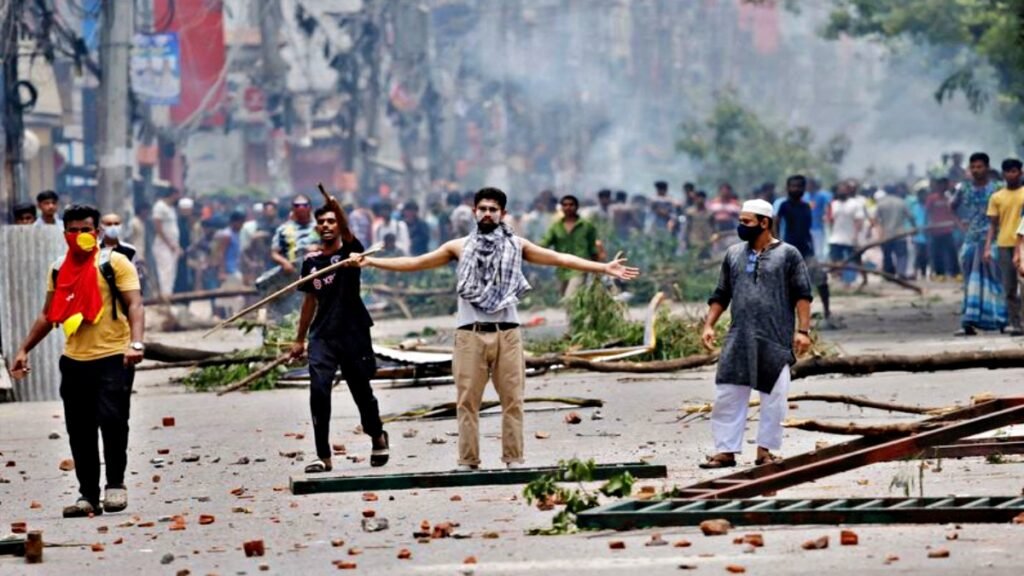
Critics and human rights groups have accused Hasina’s government of using excessive force to quell the protests, a charge the government denies. In response to the unrest, authorities shut down high-speed internet services and restricted access to social media platforms like Facebook and WhatsApp.
The nation remains on edge as the crisis unfolds, raising questions about the future of Hasina’s leadership and the potential for further violence.

